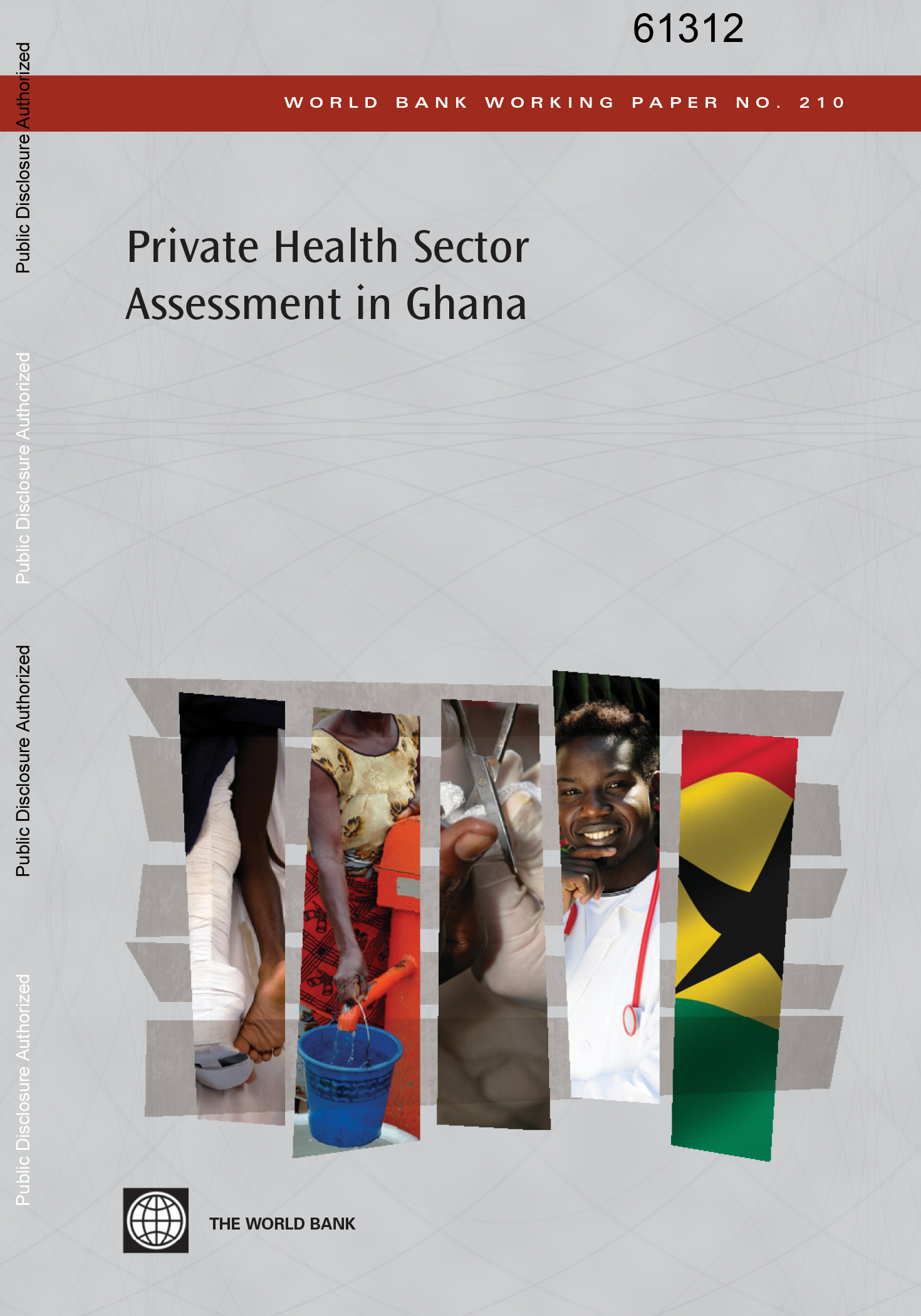
Resource Library
Private Health Sector Assessment in Ghana
This assessment sought to review the role currently played by the private health sector in Ghana, diagnose the nature and effectiveness of the interface between the public and private sectors, engage in policy dialogue with stakeholders, and develop recommendations for reform aimed at improving public-private engagement. The research team used a variety of methods to carry out the study including: secondary analysis of nationally representative household surveys in Ghana, mapping of the private health sector and short-form questionnaire with all formal health service providers—public and private—in Ghana; focus group discussions with a subset of private providers in the mapping sample; patient exit polls at a subset of facilities in the mapping sample; population focus groups with women and men in the mapped districts; and national-level key informant interviews. The researchers found that many of the human resources for health are concentrated in urban areas and chemical sellers appear to be the greatest and most accessible sources of services in rural and urban-poor areas. Users of all types, across socioeconomic status, geography, and sex, choose private providers for a substantial portion of their use of health services—in all cases, around 50 percent of their use of services, suggesting that the private sector plays a large role in the provision of health services in Ghana. Download the report for more information on the methods, findings and recommendations of the research team.
Resource Type : Report
Country : Ghana
Year : 2012-02-03T00:00:00
Language : English
Project : SHOPS


